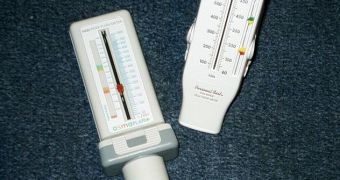Researchers say that they could soon have a new avenue of research in investigating new therapies against asthma, thanks to a genetic study that identified “suspicious” genes in thousands of people.
The new work was carried out by an international group of researchers, who profiled the genetic information of more than 26,000 test participants.
What the team was looking for where gene variants that they could link to elevated risks of people developing asthma sometimes during their lifetime.
Details of their results were published in the latest issue of the prestigious New England Journal of Medicine (NEJM), one of the most respected scientific publications in the world.
Thanks to this research effort, investigators working on developing treatments for asthma now have a new direction to go in, AlphaGalileo reports.
They could conceivably learn how to manipulate these genetic variants in such a way that they would attack the disease from novel angles.
The entire international effort was coordinated by scientists at the Imperial College London (ICL), in the United Kingdom.
The study itself was conducted by a collaboration of no less than 164 researchers, all of them a part of the GABRIEL consortium. The investigators came from 19 different European countries.
Researchers in the UK, Canada and Australia were also involved in the work. DNA samples from taken from 10,000 asthmatic children and adults, and from 16,000 non-asthmatic individuals.
After the specialists applied about 500,000 genetic tests to each single study participants, a specialized software determined the existence of seven gene variations that could be linked to asthma.
This type of research is very important because asthma prefers to attack children. In the UK, one in seven kids has the condition. Statistics are made worse by the fact that most of the children live in polluted, urban environments.
“As a result of genetic studies we now know that allergies may develop as a result of defects of the lining of the airways in asthma,” explains ICL professor of human genetics Miriam Moffatt, who was one of the leaders of the new study.
“This does not mean that allergies are not important, but it does mean that concentrating therapies only on allergy will not effectively treat the whole disease,” she adds.
“Asthma is a complex disease in which many different parts of the immune system can become activated,” concludes study coordinator and ICL director of Respiratory Sciences William Cookson.

 14 DAY TRIAL //
14 DAY TRIAL //